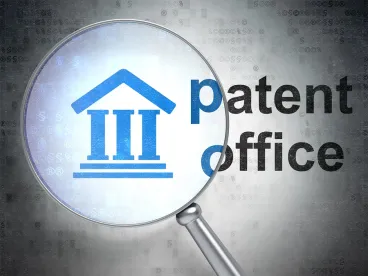The US Court of Appeals for the Federal Circuit reversed a district court’s dismissal of a declaratory judgment action for lack of subject matter jurisdiction, clarifying that a “substantial controversy” does not require a specific threat of infringement litigation. Asia Vital Components Co., Ltd. v. Asetek Danmark A/S, Case No. 15-1597 (Fed. Cir., Sept. 8, 2016) (Prost, CJ).
Asetek is the assignee of the asserted patents, which are directed to liquid cooling systems used to cool computers. In April 2014, Asetek sent Asia Vital Components (AVC) a letter accusing AVC of infringing its patents. AVC noted that it did not manufacture the products Asetek called out in its letter, but still requested a meeting with Asetek to discuss related matters. Asetek stated that it believed AVC was likely selling other infringing products in the United States, highlighted Asetek’s enforcement of its intellectual property against other manufacturers of liquid cooling systems and agreed to meet with AVC. The two parties met in August 2014 and discussed a potential license to the asserted patents but did not specifically discuss any AVC products that potentially infringed the asserted patents.
In September 2014, AVC filed a declaratory judgment complaint seeking a declaration that its liquid cooling products, identified as K7 and K9, did not infringe Asetek’s patents. Asetek moved to dismiss the complaint for lack of subject matter jurisdiction. The district court granted Asetek’s motion, explaining that because there were never any discussions between the parties as to whether AVC’s K7 and K9 products were infringing, and because Asetek was unaware of the existence of AVC’s K7 and K9 products prior to the complaint, “the complaint does not plead sufficient facts to show that there is a substantial controversy under the totality of the circumstances.” AVC appealed.
On appeal, the Federal Circuit reversed, finding that Asetek’s actions demonstrated intent to enforce its patents, creating a substantial controversy between the parties. The Court found this intent based on Asetek’s accusation that AVC was selling other infringing products in the United States and Asetek’s warning to AVC that it enforced its intellectual property in pending litigations against companies that AVC alleged sell products similar to its own K7 and K9 products. Asetek also met with AVC to discuss a potential license, even after learning that its specific allegations in its initial letter were incorrect, and made threats to AVC’s customers regarding AVC’s alleged infringement of the asserted patents. The Court found that such threats constitute affirmative actions by Asetek to “impede and frustrate AVC’s attempts to meaningfully participate in the liquid cooling market,” further supporting the conclusion that a substantial controversy existed between the parties. Additionally, the Federal Circuit found that the threat of suit was “real and immediate” because AVC had completed designs for the K7 and K9 products, including manufactured prototypes, and demonstrated an intent to market and sell the products with evidence of potential customers prepared to place orders.
The Federal Circuit emphasized that the question of jurisdiction does not turn on Asetek’s knowledge of the specific AVC products that may infringe or whether Asetek specifically alleged that the K7 and K9 products infringed, but rather whether Asetek’s actions “can be reasonably inferred as demonstrating intent to enforce a patent.” Because Asetek’s actions demonstrated intent to enforce its patents, there was a sufficient controversy to support AVC’s declaratory judgment complaint.



 />i
/>i

